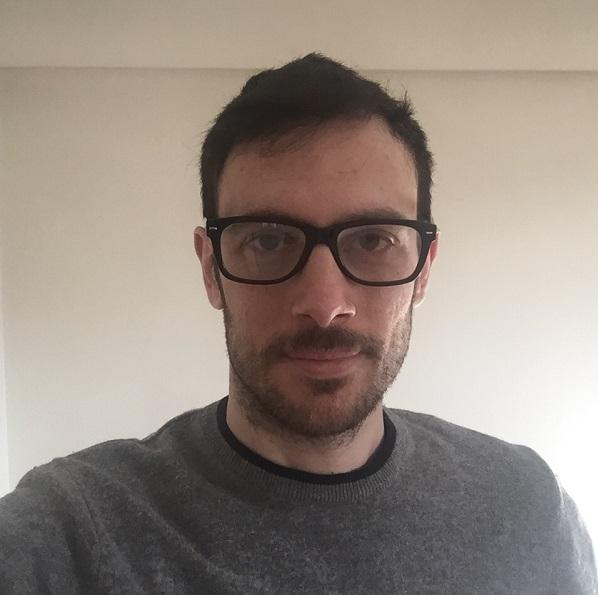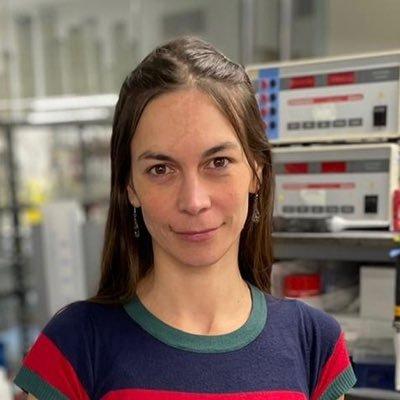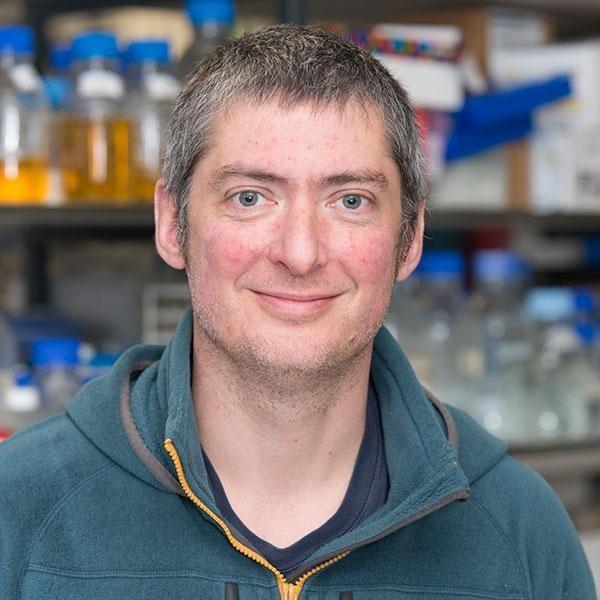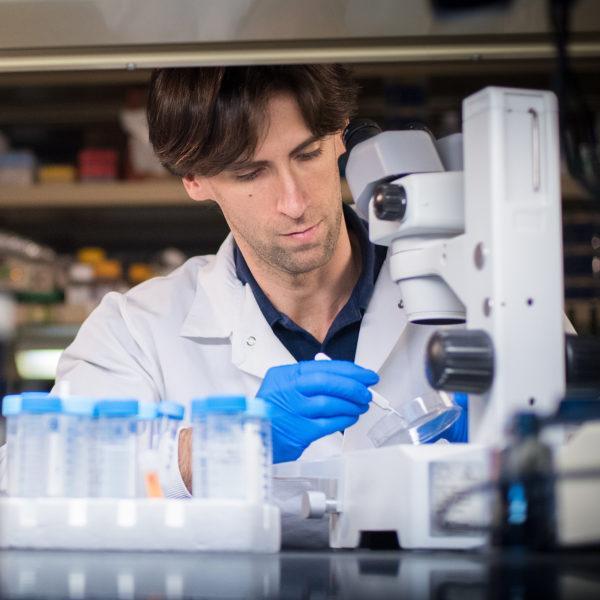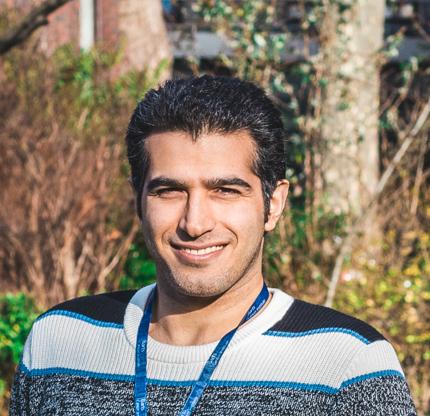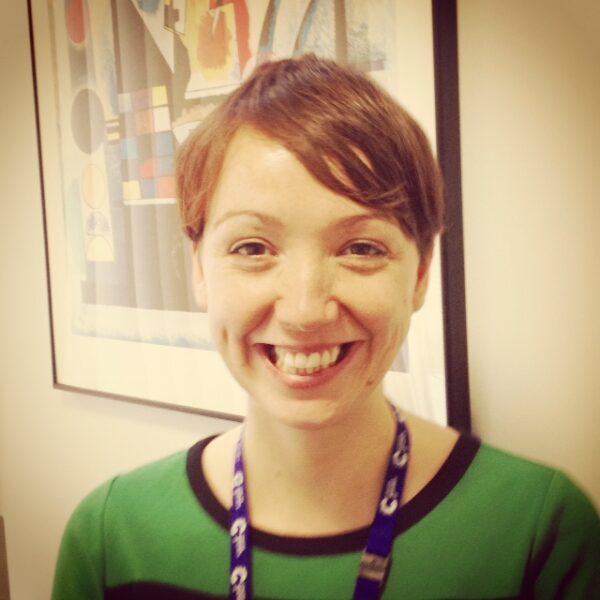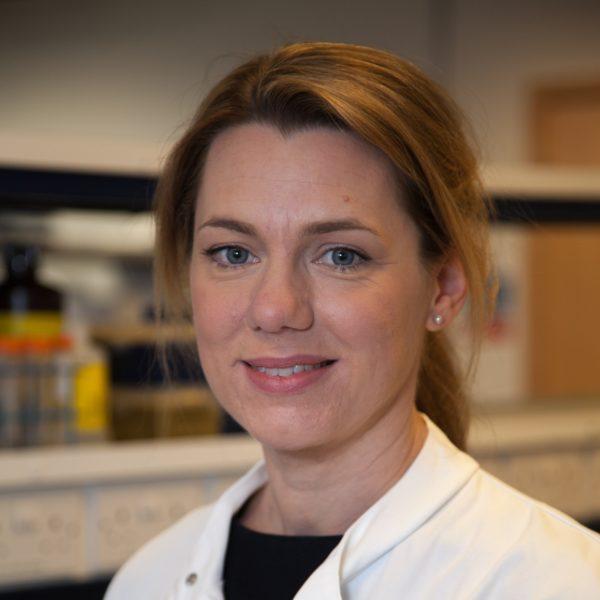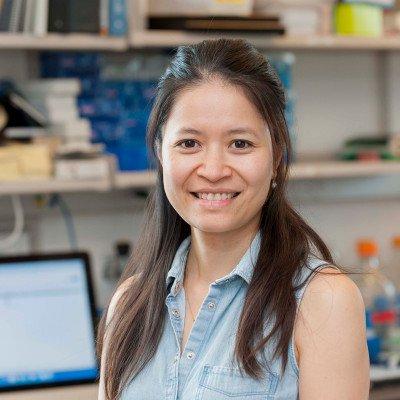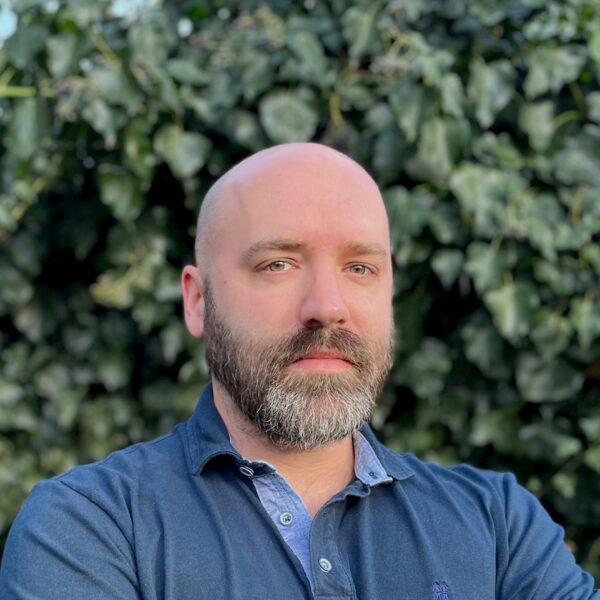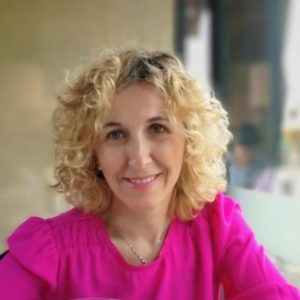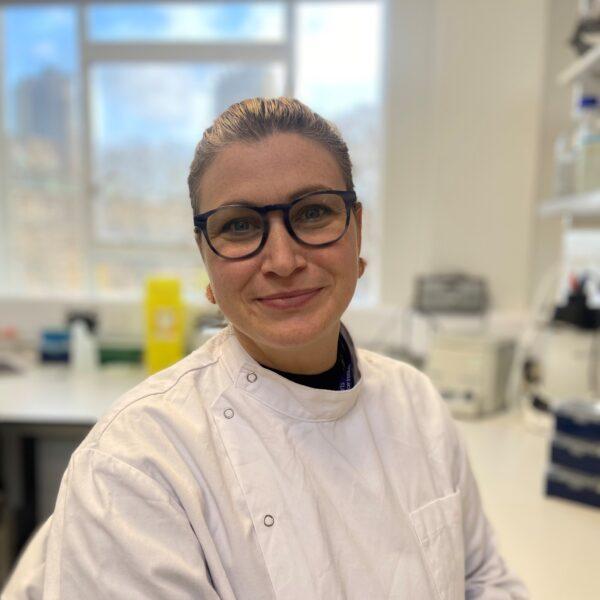Staff Directory
Dr Roberto Bellelli
Senior Lecturer
My lab aims to understand the basic mechanisms controlling DNA replication in mammalian cells and how disruption of this process leads to genomic instability and cancer.
Dr Özgen Deniz
Lecturer
Our research aims to understand the epigenetic regulation of transposable elements and how their dysregulation contributes to the generation and development of cancer. In particular, we investigate their roles as gene regulators and triggers of anti-tumour immunity in blood cancers.
Dr Andy Finch
Senior Lecturer
Our group studies changes in metabolism and metabolic stresses that are caused by oncogene activation and how these stresses lead to tumour suppressive responses.
Dr Miguel Ganuza
Senior Lecturer
Our goal is to identify mechanisms that support haematopoietic stem cell function and understand how the leukaemic stem cells “play” with these mechanisms to thrive.
Professor Kamil R. Kranc
Chair of Haematology
The central aim of our laboratory is to understand the biology of leukaemic stem cells and identify therapeutic targets to specifically eradicate them, thus discovering novel and efficient leukaemia therapies. We also focus on understanding haematopoietic stem cell biology with the hope to harness this knowledge for expanding them for therapeutic purposes.
Dr Faraz Mardakheh
Reader in RNA Biology
My lab utilises state-of-art multi-omics methodologies to study how protein synthesis is dysregulated in cancer cells, and how this dysregulation contributes to various stages of cancer progression.
Dr Sarah Martin
Reader in Cancer Cell Biology; Director of Graduate Studies for Research (BCI)
Our research group is involved in investigating nuclear and mitochondrial DNA repair as a therapeutic target in cancer. In particular, we have focused on the DNA mismatch repair (MMR) pathway, the system for recognising and repairing mistakes in DNA replication and so preventing genetic mutations.
Professor Sarah McClelland
Professor of Cancer Cell Biology and Genomics
My lab aims to understand the mechanisms that underlie numerical and structural chromosome aberrations in cancer at a molecular level, which also involves understanding how normal cells replicate and segregate their genomes.
Dr Diu Nguyen
Lecturer
The overarching goal of our laboratory is to understand the biology of normal haematopoietic and leukaemic stem cells in order to selectively kill cancer stem cells for better leukaemia treatment.
Dr Barrie Peck
Senior Lecturer
My lab aims to understand the alterations in metabolism that take place in cancer and investigate whether extrinsic factors, such as diet, influence cancer metabolism and disease trajectory. We then want to uncover whether these dependencies can be exploited therapeutically.
Professor Prabhakar Rajan
Professor Urology and Robotic Surgery
My laboratory research explores alternative pre-mRNA splicing in prostate cancer (PCa) biology, and liquid biopsy-derived molecular biomarkers of treatment outcomes.
Professor Victoria Sanz-Moreno
Honorary Professor of Cancer Cell Biology
Our research focuses on how the cytoskeleton of cancer cells regulates transcriptional rewiring during tumour growth and dissemination. We aim to understand how such rewiring affects the tumour microenvironment.
Dr Tanya Soliman
Lecturer
My research focuses on kinase biology and how kinase signalling pathways are hijacked in cancer. We combine computational biology with proteomics and cell biology to uncover novel ways to target these dysregulated networks.
Dr Lovorka Stojic
Senior Lecturer
My group studies how RNA-mediated mechanisms, in particular long noncoding RNAs, regulate cell division and how dysregulation of these processes leads to genome instability and cancer.
Professor Yaohe Wang
Professor of Cancer Cell and Gene Therapy
We work on cancer prevention and immunotherapy using tumour-targeted replicating oncolytic viruses, in particular focusing on replicating adenovirus and vaccinia virus.
Mr Satyajit Bhattacharya
Honorary Reader
I am a clinical collaborator in numerous laboratory-based studies particularly the localisation of Lipiodol in Hepatocellular carcinomas, inflammatory and immune responses to surgery, and tumour-stroma interactions in pancreatic carcinoma. Clinical areas of interest have been video consultations in tertiary care, surgery for pancreatic tumours (especially NETs) and liver tumours, and tissue banking.
Dr Emily Abraham
My research is focused on studying changes in metabolism and metabolic stresses that are caused by oncogene activation and how these stresses lead to tumour suppressive responses.
Dr Alessandro Agnarelli
My research focuses on investigating the roles of DNA Polymerase Epsilon (Pol ε) in nucleosome assembly. Using a range of biochemical and biophysical techniques (including LC-MS, Cryo-EM), my aim is to elucidate the structural analysis of the interaction between DNA Pol ε and parental histones H3-H4 at replication fork.
Dr Hannah Armes
The aim of my research project is to identify and functionally characterise candidate disease genes in familial leukaemia.
Dr James Boncan
My research investigates the functional relevance of RNA-binding proteins (RBPS) in normal haematopoiesis and acute myeloid leukaemia (AML) pathogenesis.
Dr Alina Chakraborty
My research focuses on understanding the role of RNA localisation in breast cancer progression. In particular, I am looking at how and why the cellular localization of some small nuclear RNAs (snoRNA) are altered during disease progression.
Dr Lourdes Chulia-Peris
My research focuses on studying the bidirectional crosstalk between normal fibroblast (NF), CAFs, matrix organisation and the acquisition of tumour amoeboid cell state in co-culture systems.
Dr Alice Coomer
My research aims to understand the mechanisms through which long noncoding RNAs can control genome stability in cancer.
Dr Maria Fankhaenel
My research focuses on understanding how centrosome amplification impacts tumour angiogenesis and how this can be targeted to develop new cancer therapies.
Dr Julia Frankenberg Garcia
My research project is focused on understanding the impact of centrosome amplification in cancer, in particular the role of extra centrosomes in tumour evolution.
Dr Guillem Fuertes Marin
My research is focused on studying the molecular mechanisms of integrin αvβ6-driven pancreatic ductal adenocarcinoma (PDAC) progression and metastasis.
Dr Paul Grevitt
My research projects involve identifying tumour suppressors involved in regulating the hypoxic response and metabolic stress, with the aim to identify novel targeted therapies against these.
Dr Giulia Guiducci
My research activity aims to characterise lncRNAs involved in the maintenance of genomic stability and to understand how their dysregulation can lead to cancer development.
Dr Kubra Karaosmanoglu Yoneten
Our research is focused on metabolic stresses accompanying activation of oncogenes. We are investigating cell responses to metabolic stresses in order to deeply understand these mechanisms and propose metabolic targets for cancer therapies.
Dr Paramita Kundu
My project aims to explore the contribution of nuclear-cytoplasmic distribution and traffic of transcription factors that aid the aggressiveness of melanoma, and explore possible epigenetic aspects of melanoma initiation and progression.
Dr Audrey Lumeau
My research focuses on understanding the relationship between chromosome instability mechanisms and tumour cells’ resistance to therapies.
Dr Christopher Mapperley
My research is focused on investigating how the epitranscriptome regulates normal and malignant haematopoiesis.
Dr Tizong Miao
My project aims to identify strategies to boost host anti-cancer immune response through enhanced oncolytic efficiency of oncolytic viruses by small molecules.
Dr Ankit Patel
My main research focuses on examining the immune landscape and identifying specific immune determinants that can predict the progression from actinic keratosis, a pre-malignant lesion, to cutaneous SCC. I am analysing single cell RNA-seq data and utilizing machine learning algorithms to evaluate potential diagnostic and prognostic markers that could aid in the identification of high-risk SCC patients. The identification of these markers is critical for early detection and intervention, which can significantly improve patient outcomes.
Dr Iuliia Pavlyk
My research focuses on exploring why ASS1 is differently expressed in human cancers and how this information may be transferred for anticancer therapy.
Dr Celine Philippe
My project focuses on the translation reprogramming in acute myeloid leukaemia upon stresses such as chemotherapy.
Dr Charlott Repschläger
My research focuses on the perturbation of EMT-like pathways in follicular lymphoma and chronic lymphocytic leukaemia and how this promotes cancer propagation, transformation into a more aggressive form of disease and resistance to therapy.
Dr Raul Sanchez Lanzas
Our research is focused in defining the cellular interactome of haematopoietic stem cells and leukaemic stem cells inside their niches during adulthood, ageing and disease. We are also interested in the cellular and molecular mechanisms that drive clonal selection and evolution in clonal haematopoiesis.
Dr Aashika Sekar
Using the fruit fly, Drosophila melanogaster, I aim to dissect the role played by protein phosphatases in regulating the tissue growth controlling Hippo signalling pathway, which has commonly been implicated in cancer development, progression and metastasis.
Dr Irina Titkova
My research focuses on exploiting cell cycle vulnerabilities and signalling rewiring in tumour cells, to find new approaches to treat cancer.
Dr Sam Wallis
My research uses microscopy to examine how microtubule post-translational modifications affect DNA damage repair and how this could be exploited to enhance chemotherapy.
Dr Laura Wisniewski
My project looks at the modelling of cancer for improved therapy development. I am carrying out in vivo cancer experiments, with and without modifications of the tumour microenvironment, to examine effects of such treatments on anti-cancer therapy efficacy.
Dr Keith Woodley
My project looks at the metabolic mechanisms of drug resistance in acute myeloid leukaemia (AML). We look to understand what makes certain cells more vulnerable to AML treatment and how we can use this to improve overall treatment strategies.

